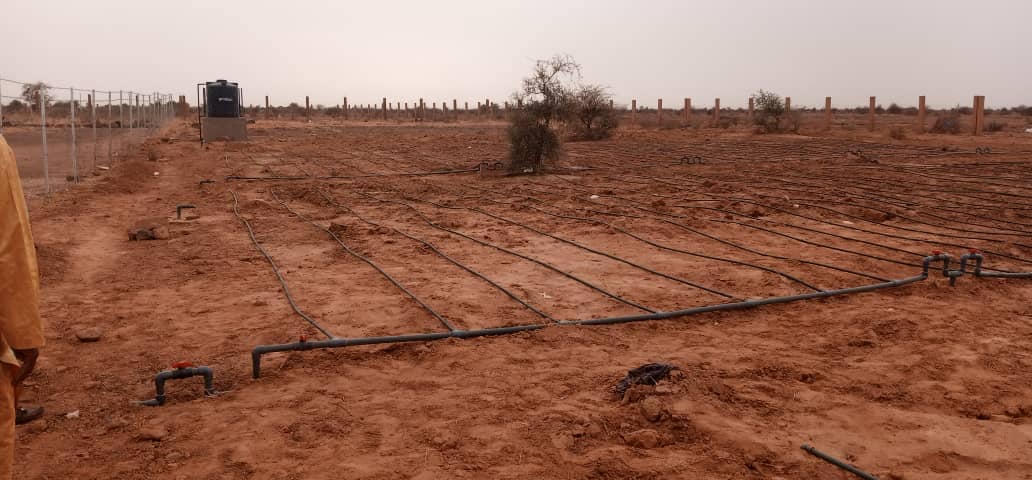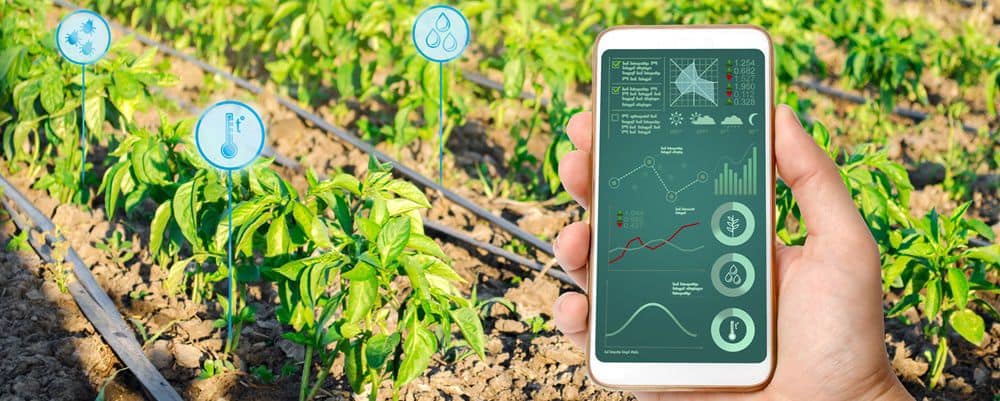
YouthADAPT Challenge winner IPREN is scaling up the reach of its digital climate adaptation solutions to help more farmers across the Sahel adapt to climate change
The Sahel region in Africa is one of the hardest hit by global warming in the world. Temperatures in the region are rising 1.5 times faster than the global average, and the Sahel is facing intensified droughts and floodings. Of the six nations at the heart of the Sahel, three (Niger, Mali and Chad) are listed in some rankings as among the seven countries most vulnerable to climate change on Earth.
Many people living there are exposed to food insecurity due to low agricultural production linked to climate shocks and food price inflation. The Sahel region therefore finds itself in a critical situation of climate crisis and food insecurity, in the face of which the World Bank has stressed the need to accelerate growth and prioritize climate adaptation. The agricultural sector has a particularly important role to play in the region’s development and prosperity.
It is in this context that Chafi Sani Laouali, a young entrepreneur from Niger, decided to set up IPREN, a company which specializes in providing farmers with digital climate adaptation solutions to make their farmland more resilient and profitable, despite the consequences of climate change in the region. Among other achievements, this young entrepreneur won the African Youth Adaptation Solutions Challenge (YouthADAPT Challenge), an annual competition organized by the Global Center on Adaptation (GCA), the African Development Bank, and Climate Investment Funds to support youth entrepreneurship and initiatives for climate adaptation in Africa.
In an interview with GCA, IPREN CEO Chafi Sani Laouali shared his journey, the difficulties he faced, and the ways in which the YouthADAPT Challenge helped his company achieve its goals.
(This interview has been translated from French to English and edited for clarity)

What climate change-related challenges do you and your community face on a daily basis?
Chafi Sani Laouali: Climate change has greatly impacted African countries, especially in the Sahel, with the disruption of rainfall patterns. Our rainy season used to last four to five months but today it is very short and water levels are decreasing year after year. In addition to this, desertification is advancing day by day in the region. As a result, soil fertility is poor and agricultural production low, which significantly impacts the local population.

What solutions did you find and what inspired you to set up IPREN?
Chafi Sani Laouali: The solution I have found is the digitalization of agriculture, which I have developed with my company IPREN. In Sahelian countries, we have enough land and groundwater but we lack the appropriate technologies to link the two. Today, farmers continue to use rudimentary agricultural practices such as watering cans. As a result, they need a lot of labour for a small area of land, which negatively impacts crop yields. With this in mind, I decided to combine technology with agriculture by creating the Smart-O solution, which is a remote irrigation control kit. Personally, I believe that there are many opportunities for technological innovations in the agricultural sector and they can help Sahelian countries overcome the problems they face with climate change.
Where do you apply your solutions? Do you have an example from a particular community or province?
Chafi Sani Laouali: In terms of strategy, with IPREN, we first developed our solutions by taking our production conditions into account, which is why we signed strategic commercial partnerships that enable small producers to benefit from our solution and above all to develop an app that facilitates buying and selling. We are currently present in eight regions of Niger through a commercial partnership we have forged with microcredit institution Capital Finance. As a company, we want to expand our presence to markets in other countries such as Burkina-Faso and the Ivory Coast. We already have solutions in place and commercial partnerships with other companies in these two countries and we would like to develop branches there quickly, as the demand for our products is strong. This is therefore an opportunity for us to achieve our vision and goals.
How do your solutions contribute to the community and climate adaptation?
Chafi Sani Laouali: I believe that we are revolutionizing agriculture here in Niger and in Africa. Through our solutions, we are pushing farmers to look at agriculture from a different angle, by using phones not just for communication but for more useful and practical purposes. Our aim is to add value to the use of cell phones, and we achieve this by encouraging village farmers to use our solutions.
What are some of the challenges and obstacles that you have faced trying to implement your solutions?
Chafi Sani Laouali: The first challenge was the acceptance of innovation. In Africa, many don’t believe in innovation. We visited countless markets and villages to offer our solution but a large number of farmers preferred to continue using their traditional methods, such as watering cans, because they did not believe our solution would water the plants correctly. As a result, we had to run a communication and demonstration campaign to get farmers on board with our solution.
In the meantime, we also faced cost-related challenges as villagers found our solution too expensive. That’s why we turned to our strategic partner Capital Finance, through whom farmers were able to acquire our solution on credit. Before the recent coup d’état in Niger, which slowed down activities and projects nationwide, we had negotiated a partnership with the government to subsidize part of our solution.

What led you to apply to the YouthADAPT challenge?
Chafi Sani Laouali: When I saw the YouthADAPT challenge, I realized that it was an opportunity for IPREN to succeed in achieving its vision, and more specifically its goal of expanding throughout the continent. YouthADAPT was also an opportunity to take part in an international challenge that would help me enhance how I manage the company, as well as our financial capabilities. More generally, the challenge helped us focus our vision, get closer to our objectives, and improve our managerial skills.
How did you use the resources received from the program?
Chafi Sani Laouali: I used the resources received to improve our communication in order to publicize IPREN on a wider scale, a strategy I consider essential for the company and its continental objectives. I improved our communication, organized demonstration sessions and, above all, made an official presentation with a part of the money granted to us. For this presentation, I invited strategic partners, NGO representatives, and farmers’ cooperatives to demonstrate the impact and effectiveness of our solution.
IPREN is currently enhancing our solution to make it even easier to use, thanks to the funding received from YouthADAPT. We are also developing an irrigation control solution that enables farmers to collect data on soil parameters. Once we have the soil data, we can suggest the amount of fertilizer needed to farmers, based on the soil deficiencies. This is an example of an innovative adaptation solution that focuses on adapting our soils, which suffer from low fertility.

What are the next steps for you? What are your ambitions for IPREN?
Chafi Sani Laouali: Regarding the irrigation control solution, we are planning to launch it in January 2024. As for our ambitions, we would like to expand into other regions of the African continent. As I mentioned, we have started working on the Burkina-Faso and Ivory Coast markets, and we want to have an active branch in those countries to expand our activities. More generally, our aim is not just to apply this African agricultural technology in one country. IPREN’s ambition is to be the leader in digitizing the agricultural sector across Africa.
Do you think that economic profitability and adaptation to climate change can be compatible objectives for a company?
Chafi Sani Laouali: In my opinion, IPREN is a concrete example of the compatibility of these two objectives. More generally, I think that the compatibility between economic profitability and climate adaptation depends on the type of business. For companies focused on agriculture, there are many opportunities for linking economic profitability and climate adaptation, particularly through innovation.
What advice would you give to other young African entrepreneurs?
Chafi Sani Laouali: As I mentioned, innovation is key for young entrepreneurs. When it comes to entrepreneurship, you must know what you want, map out your goals and have a clear vision for achieving them. In my case, I wanted to go into entrepreneurship because my vision was not to be employed by someone else, but rather to create value and offer solutions to society’s problems while creating economic profits.


